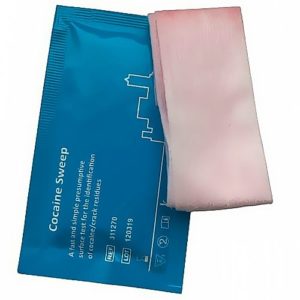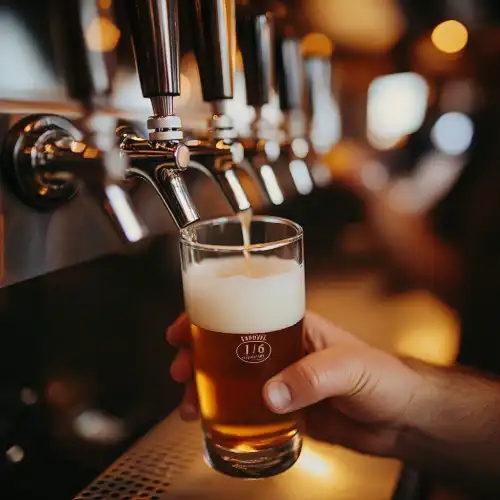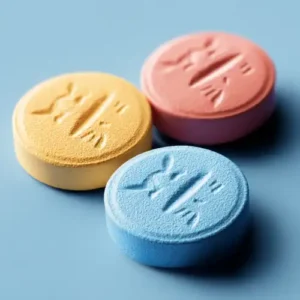The trade and consumption of drugs in bars, clubs, and pubs is on the rise. In a recent drugs raid, a bar owner lost his licence owing to the arrest of multiple customers who were found to be in possession of cocaine. After much investigation, the licence was returned to the bar owner at the expense of installation of CCTV cameras, removal of all horizontal surfaces from the bathrooms, and assistance to the police in implementing a strong drug-related policy.
The relationship between drugs and clubs is an old one. However, the dimensions of this relationship have increased to bring bars and pubs into them as well. It has, therefore, become imperative that licensees and their staff members keep themselves aware of the potential hazards the process of drug trading (and consumption) brings with itself. The cases like the one mentioned above are becoming quite common which is not good news for those in the business of running bars and pubs.
Ignoring Is Allowing
If you’re ignoring any trade of or suspicious activity relating to drugs that is going on in your bar, you are in effect allowing it to go on. This ignorance can potentially lead to a criminal conviction and you can lose your licence. As per the Misuse of Drugs Act 1971, a manager who deliberately permits or suffers the supply and/or production of drugs (of any kind) on his/her campus is liable for a criminal prosecution. The extent and degree of penalty depends on the class of the drug involved. For instance, allowing the supply of cocaine can lead up to 14 years of prison whereas ketamine amounts of 5 years of jail time.
Be aware, police are actively looking to crackdown on drug use in pubs. Raids on pubs, involving specialist drugs dogs, are becoming more common as police seek to enforce licensing rules. As well as Cocaine, police are concerned about Ketamine use on licensed premises. Also, the increase in drink spiking means that police are also looking to stop the supply of benzodiazepines.

The Hidden Costs of Drug Use in Bars
Drug use in bars doesn’t just risk your licence – it can sink your bottom line too. Beyond legal troubles, you’re looking at a whole host of hidden costs:
- Increased insurance premiums
- Property damage from rowdy patrons
- Higher staff turnover (who wants to work in a sketchy joint?)
- Reputation damage that’s hard to shake
- Lost business from families and professionals
But here’s the kicker: drug use breeds more drug use. It’s like a snowball rolling downhill, picking up speed. Before you know it, your once-cozy pub is the go-to spot for the local drug scene. And trust me, that’s not the kind of loyal customer base you want.
So don’t just think about avoiding fines or jail time. Consider the long-term health of your business. A clean, safe bar isn’t just legally smart – it’s a solid investment in your future.
Be Aware of the Signs of Drug Trading
If you make yourself aware of multiple signs of drug trading and resolve to keep a check on it, you will be able to save your licence as well as the reputation of your property. In order to do that, you can:
Make use of Drug Swabs: More often than not, it is the police that swabs an area for drugs in order to produce a report for the licence holder. The police department working on implementing a strict drug policy conducts seminars and workshops on the correct usage and procedure of these swabs which proves fruitful for the licensees. One of the providers of disposable drug test kits are Zoom Testing whose kits swab for Cocaine—the most used drug in pubs and bars. The drug testing wipes appear like ordinary wet wipes but go blue when they come in contact with a surface that has had cocaine on it. These wipes can also be used on mobile phone surfaces which allows the licensee to check whether the people have been handling drugs.
Install CCTV Cameras: This has to be the most basic step that one can take in order to maintain the security of their property. CCTVs help the most by covering secluded areas but the owners must remember that their cameras are in compliance with the Data Protection and SIA Licensing Conditions.
Patrol your Premise: Make sure that you make your presence visible as management. Keep a constant check on all areas and commit to high-standard services.
Employ Door Supervisors: Whenever your finance allows, hire a team of door supervisors to prevent drug dealing at any level in your pub and/or bar. This team helps in searching anyone and everyone who enters your premises. Though a search can only be carried out with the consent of the person, entry can be denied to any person who refuses to cooperate.
Regularly Supervise Toilets: Mostly all the drug (or other illegal) trading happens in the bathrooms of a pub. That is why supervising a toilet regularly is important. Also, appointing some supervisor staff there prevents people from gathering there and carrying out any illegal activity.
Have a Drug Policy Implemented: Though not a legal requirement for a club, it is morally appropriate to have a drug policy for you bar or pub or club. A strict drug policy illustrates your commitment to tackling drugs and respecting the law. Before you draft a policy, it is important that you are aware of all the issues relating to drugs as well as your premises. Another prime thing to remember is to train your staff to implement the policy and be vigilant in dealing with issues/instances relating to drugs. The policy can be inclusive of a procedure that registers all suspicions of drug dealing and/or consumption as well as a protocol to be followed when any drugs found are to be handed over to the police. An operator can also discuss their drug policy with the local Police and make it tighter.
Extra Measures
While the steps outlined above are important for addressing drug issues in bars and pubs, there are several other best practices that operators should consider:
- Work closely with local police and licensing authorities. Maintain open communication to stay up to date on drug trends in your area. Invite police to do spot checks or sniffer dog patrols. This shows your commitment to a drug-free venue.
- Train staff on recognising signs of drug use and dealing. Look for changes in patron behaviour, frequent trips to the bathroom, cash transactions. Teach staff how to handle and report suspected drug activity. Provide incentives for reporting issues.
- Tighten control of all entries and exits, especially back doors, fire exits, bathroom windows etc. These are often used for drug deals or consumption. Monitor all access points with security personnel or cameras.
- Enhance lighting in dark areas indoors and outside in parking lots, alleys etc. Improved visibility deters drug activity.
- Consider installing mirrors or angled cameras in bathrooms to eliminate blind spots for illegal activity.
- Frequently check bathrooms and sweep for paraphernalia or stashes. Check toilet cisterns, underside of sinks, baby changing tables. Dispose of anything found discreetly.
- Announce a zero tolerance policy via posters, flyers, social media, and verbally by staff. Make consequences clear — removal, banning, involving authorities. Enforce consistently.
- Hire professional security guards to monitor premises and handle conflicts. Well-trained guards can help avoid issues escalating or spreading.
- Offer patrons incentives like discounts on soft drinks to choose alcohol-free options. Being intoxicated increases likelihood of using drugs.
- Host events promoting drug-free lifestyles, e.g. live music, games, competitions. Creative entertainment options divert focus from drugs.
- Maintain membership lists and cover charges to control who enters your venue. Require IDs to keep out underage patrons.
- If drugs are impacting your profits, consider diversifying your business model, e.g. serving food, non-alcoholic options, etc. New offerings draw new crowds.
Implementing comprehensive precautions requires commitment of time and resources. However, the effort helps bars cultivate a safe, controlled environment where patrons make positive choices. With community cooperation, local nightlife can thrive free of the harmful effects of drugs.
Photo by Anthony Cunningham for Zoom Testing
Zoom Testing is a leading UK drug testing company and a supplier of Drug Test Kits.
This post was originally published in 2019. It was last updated in January 2025.





